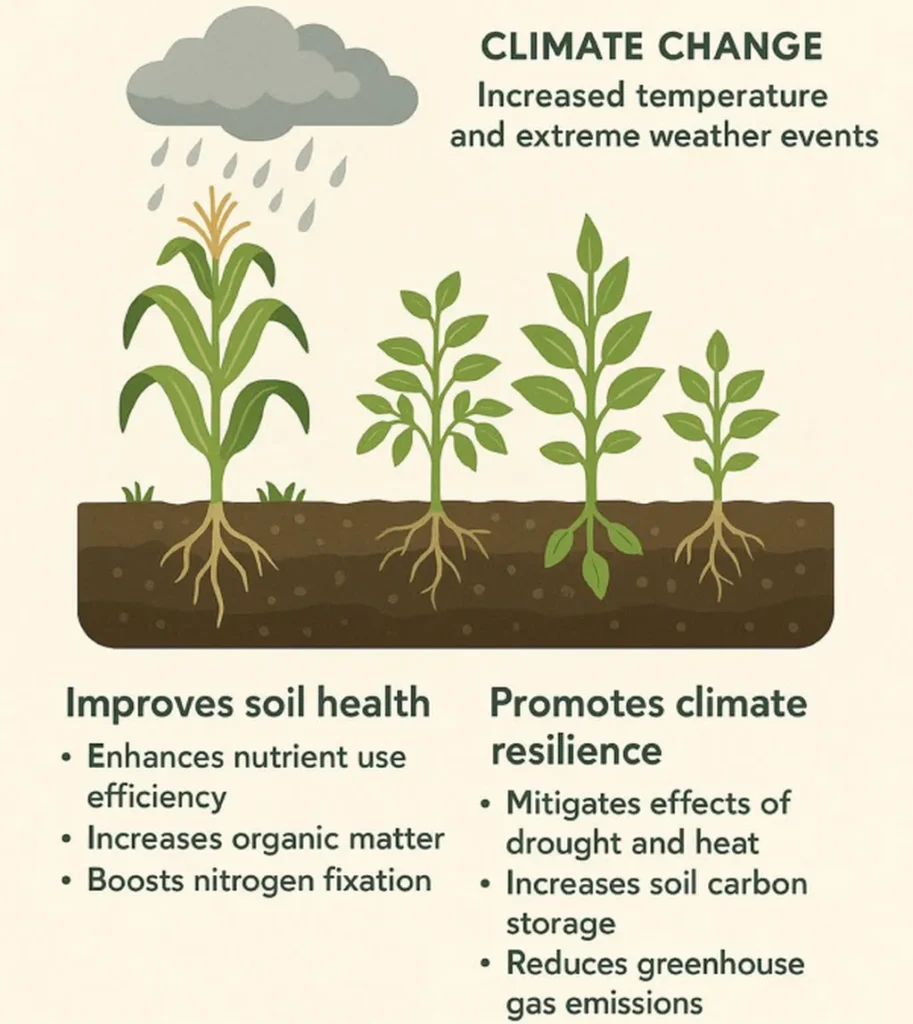In the face of climate change, farmers are grappling with increasingly unpredictable water availability, posing a significant threat to wheat production—a staple crop that feeds billions worldwide. A recent study published in *Frontiers in Sustainable Food Systems* offers a promising solution, demonstrating that vermicompost can enhance wheat resilience and productivity under drought conditions.
Conducted by Ali Ahmad and colleagues at the University of Agriculture Faisalabad, the research explored how different vermicompost sources influence wheat’s agronomic and physiological traits under varying soil moisture levels. The team tested three drought scenarios—no drought, mild drought, and severe drought—alongside four vermicompost treatments: a control group, wheat straw vermicompost, rice straw vermicompost, and cow dung vermicompost. Two wheat cultivars, Faisalabad-08 (drought-tolerant) and Galaxy-13 (drought-sensitive), were also compared.
The results were striking. Drought stress significantly reduced wheat growth, yield, and physiological attributes, but vermicompost application mitigated these adverse effects. Cow dung vermicompost emerged as the most effective, followed by rice straw and wheat straw vermicompost. “The improvements were substantial,” said lead author Ali Ahmad. “Cow dung vermicompost, in particular, showed the greatest potential to enhance wheat resilience under drought conditions.”
The study also revealed that the drought-tolerant cultivar, Faisalabad-08, outperformed the drought-sensitive Galaxy-13 under both mild and severe drought conditions. This finding underscores the importance of selecting appropriate cultivars in conjunction with soil amendments to maximize yields in water-scarce environments.
The commercial implications of this research are profound. As water scarcity becomes an increasingly pressing issue, farmers and agronomists are seeking sustainable, cost-effective solutions to maintain crop productivity. Vermicompost, derived from organic waste, offers a dual benefit: it enhances soil health and crop resilience while providing an eco-friendly disposal method for agricultural byproducts.
The study’s findings could reshape agricultural practices, particularly in regions prone to drought. By integrating vermicompost into their farming routines, growers may improve wheat yields and reduce reliance on synthetic fertilizers, contributing to more sustainable and resilient agricultural systems.
As climate change continues to disrupt traditional farming patterns, innovative solutions like vermicompost application will be crucial in ensuring food security. This research, published in *Frontiers in Sustainable Food Systems* and led by Ali Ahmad from the Department of Agronomy at the University of Agriculture Faisalabad, provides a compelling case for adopting vermicompost as a key strategy in modern agriculture.

